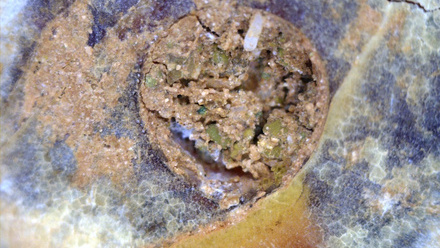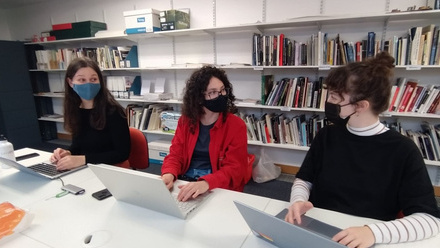As professionals charged with the long-term care of cultural heritage, conservators and heritage scientists play a crucial role in both reaching net zero targets and advancing the sustainability agenda. With their specialised expertise in preserving and managing assets, they can drive significant reductions in energy consumption and emissions, effectively mitigating the effects of climate change.
The Heads of Conservation and Scientific Departments in National Museums, Galleries, Libraries and Archives in the UK* have taken a positive and progressive step by committing to a risk management approach to environmental requirements for collection materials, balancing the care of and access to collections with the demands of sustainability. The recommendations they make will be informed by their extensive knowledge and understanding of their collections, ensuring they are both practical and effective.
As skilled ethical practitioners, conservators can demonstrate that heritage preservation and sustainability are not mutually exclusive but rather interdependent and complementary. Conservators and heritage scientists have the power to inspire sector-wide colleagues to adopt more sustainable practices and work towards a Net Zero future in support of the Paris Agreement and the UK Net Zero Strategy.
*Participating institutions
- British Library
- English Heritage Trust
- Historic Environment Scotland
- Historic Royal Palaces
- Horniman Museum and Gardens
- Lincoln Cathedral
- Museum of London
- National Museum of the Royal Navy
- National Conservation Service (NCS)
- National Galleries of Scotland
- Natural History Museum
- National Museums Liverpool
- National Museums Scotland
- National Library of Scotland
- National Trust
- National Portrait Gallery
- National Records of Scotland
- Royal Albert Memorial Museum
- Royal Museums Greenwich
- Royal Air Force Museum
- Science Museum Group
- Tate
- V&A
For those who wish to join this initiative, and make a positive impact on both heritage preservation and sustainability, email Icon at [email protected] to have your institution added to the growing list of participating organizations.
About the statement
The above statement highlights the commitment of Heads of Conservation in the UK to environmental sustainability.
Icon set up the Conservation Policy Forum in 2022. The Forum brings together the Heads of Conservation working in the National Museums and those with a similar role in caring for collections in other large and/or national organisations. The Forum is UK-wide and was set up as a place to discuss important policy issues, such as environmental standards.
If you would like to join the Conservation Policy Forum please email Patrick Whife, Head of Policy & Skills at [email protected].
Recent Forum meetings have acknowledged that there is a great deal of current research into environmental requirements for collection materials and that a number of institutions are already taking a risk management approach to caring for the collections. An overview is available in an article written by Icon’s former Chief Executive, Sara Crofts: Environmental Standards – Embracing Risk. It therefore made sense to write a joint statement to increase awareness of the issue across the wider sector. This statement encourages institutions to join the initiative by adding their organisation to the growing list of supporters. By doing so, they can make a positive impact on heritage preservation and support the move towards greater sustainability.
The statement is also a call to action for conservators and heritage scientists to recognise and embrace their crucial role in achieving sustainability goals and reaching net zero targets. They have the expertise to manage and preserve assets in a sustainable manner, which can lead to significant reductions in energy consumption and emissions. Please visit the Icon Sustainability Network and Icon Care of Collections group pages for more information about what the sector is doing to address environmental sustainability.
We are aware that much of the current debate is happening in institutions where there is in-house expertise and that there are many organisations who will also want to work towards Net Zero while ensuring that their collections are cared for appropriately. To address this, Icon is working with Arts Council England to review the current Government Indemnity Scheme advice on environmental conditions and hopes to produce user-friendly guidance that will help everyone working in this sector to understand and implement suitable environmental conditions.






